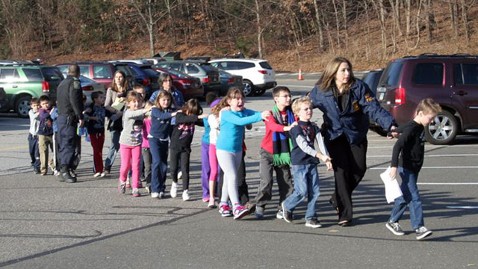Pope Benedict XVI announced today that he will resign Feb. 28, saying his role requires "both strength of mind and body."
The pope's decision makes him the first pontiff to resign in nearly 600 years. A conclave to elect a new pope will take place before the end of March. The 85-year-old pope announced the decision to resign in Latin during a meeting of Vatican cardinals.
FULL COVERAGE: Pope Benedict XVI Resignation
"After having repeatedly examined my conscience before God, I have come to the certainty that my strengths due to an advanced age are no longer suited to an adequate exercise of the Petrine ministry," he said. "I am well aware that this ministry, due to its essential spiritual nature, must be carried out not only by words and deeds but no less with prayer and suffering."
Pope Benedict XVI was the oldest pope to be elected at age 78 on April 19, 2005. He was the first German pope since the 11th century and his reign will rank as one of the shortest in history at seven years, 10 months and three days.
RELATED: Pope Benedict XVI Resigns: The Statement
The last pope to resign was Pope Gregory XII, who stepped down in 1415.
Vatican officials said they've noticed that he had been getting weaker, while Benedict said he is aware of the significance of his decision and made it freely.
Vatican Communications Director Greg Burke told ABC News that he was surprised but wasn't shocked by the announcement, and cited an interview in which Benedict said a pope not only could resign, but should resign.
Pope Benedict XVI Resignation: Who Will Be Next? Watch Video
"[Pope Benedict] is slowing a bit, and there's nothing immediately serious or grave. He has an older brother. He just thought the demands of the job were too much for his physical well being."
INTERACTIVE: Key Dates in the Life of Pope Benedict XVI
Benedict's brother, the Rev. Georg Ratzinger, had shared his concerns about the pope's health in September 2011, telling Germany's Bunte magazine that he should resign if health issues made the work impossible. More recently, Ratzinger has apparently cited his brother's difficulty in walking and his age, saying that Benedict had been advised by his doctor to cease transatlantic trips and that he had been considering stepping down for months, according to the German DPA news agency.
Among other ailments, the pope reportedly suffers from arthritis and arthrosis -- a debilitating joint-degeneration condition -- and his declining health drew attention about a year ago when he used a cane at the airport on his way to a trip to Mexico and Cuba.
Benedict has been a less charismatic leader than his predecessor, John Paul II, but tending to the world's roughly 1 billion Catholics still requires stamina Benedict seems to believe he now lacks.
PHOTOS: Pope Benedict XVI Through the Years
"Obviously, it's a great surprise for the whole church, for everyone in the Vatican and I think for the whole Catholic world," the Rev. John Wauck, a U.S. priest of the Opus Dei, told "Good Morning America" today. "But, at the same time, it's not completely surprising given what the pope had already written about the possibility of resigning.
"It's clear in terms of his mental capacity he's in excellent shape, he's very sharp, and so when he says he's making this official with whole freedom, it's clear that that's the case, that makes one believe that this is an act taken out of a sense of responsibility and love for the church."
It is a road that leads back to the 1930s.
Ratzinger started seminary studies in 1939 at the age of 12. In his memoirs, he wrote of being enrolled in Hitler's Nazi youth movement against his will when he was 14 in 1941, when membership was compulsory. In 1943, he was drafted into a Nazi anti-aircraft unit in Munich. He says he was soon let out because he was a priest in training.
He returned home only to find an army draft notice waiting for him in the fall of 1944.
As World War II came to an end, the 18-year-old Ratzinger deserted the army. In May 1945, U.S. troops arrived in his town and he was sent to a prisoner-of-war camp.










